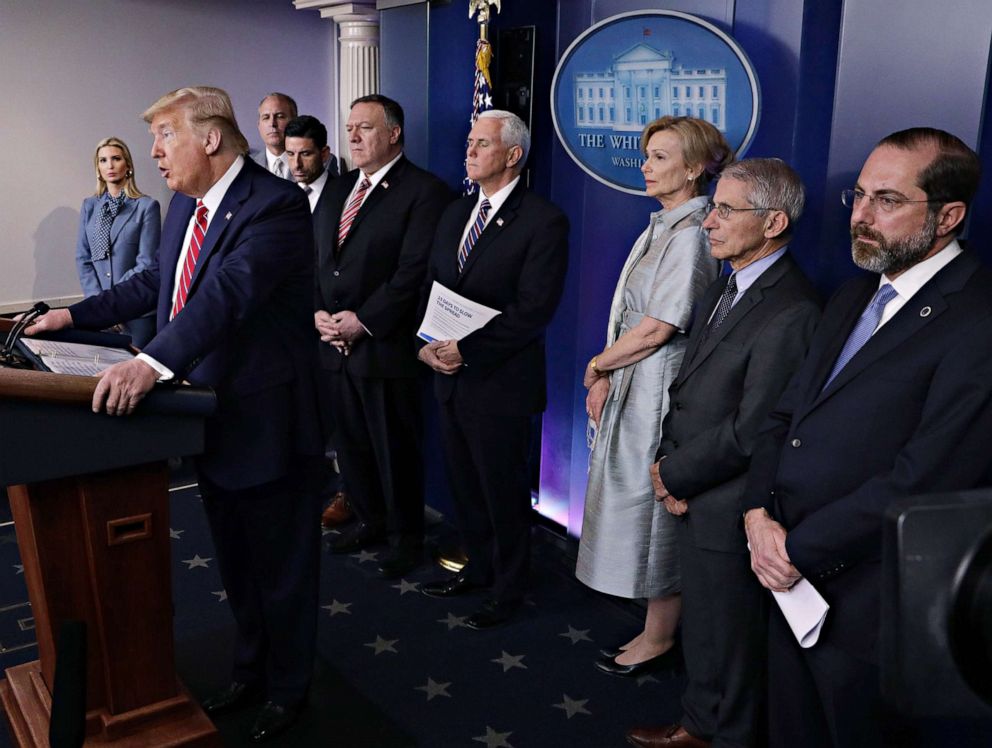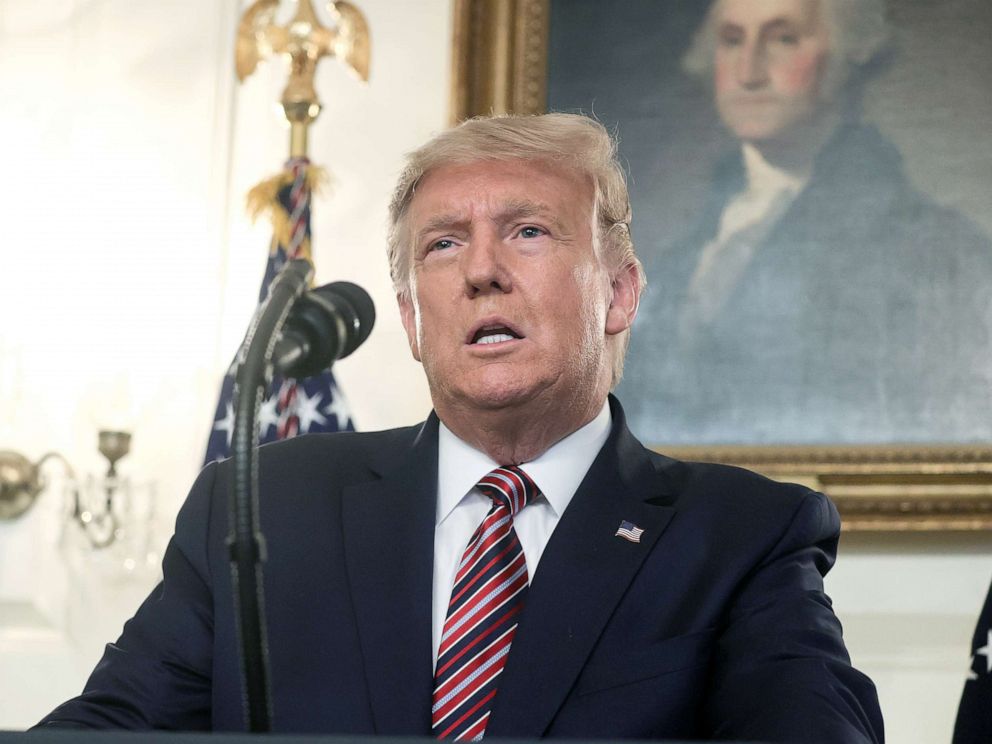What President Trump said about the coronavirus versus what Bob Woodward recorded in interviews: Timeline
According to reports, Trump admitted he played down coronavirus threat.
From the first time President Donald Trump addressed the coronavirus outbreak, he sought to portray it as a situation that was under control.
"We've already handled it very well," he told reporters in late January.
But over seven months into a global pandemic, newly released recordings from interviews with journalist Bob Woodward for his upcoming book "Rage" show that the president was publicly playing down the threat while privately acknowledging the severity of the virus which has now claimed over 190,000 American lives, according to reports on Wednesday.
ABC News has not obtained copies of Woodward's book or the audio recordings and could not independently confirm the reports.

Here's a timeline of some of Trump's public statements about COVID-19, as well as his reported comments to Woodward:
Jan. 31: The Trump administration declared a public health emergency and the president signed an order limiting travel from China to the U.S.
Feb. 2: On the same day the Trump administration's travel restriction on China went into effect, the president told Fox News that it is effective in stopping the virus from spreading.
"We pretty much shut it down coming in from China," he said.
Feb. 7: Following a call with China's President Xi Jinping, Trump told Woodward the conversation centered around the coronavirus outbreak, according to a recording first reported on by CNN and the Washington Post.
"I think he is going to have it in good shape. But it's a very tricky situation. It goes through air, Bob," he said. "It's also more deadly than even your strenuous flus."
"This is deadly stuff," he added.
Feb. 10: At a rally in New Hampshire, Trump began to spread the idea the coronavirus may simply disappear.
"Looks like by April, you know in theory, when it gets a little warmer it miraculously goes away," he said. "I think it's going to all going to work out fine."
Feb. 26: Fewer than three weeks after telling Woodward the coronavirus was deadlier than a strenuous flu, the president said during a White House coronavirus task force briefing: "The flu, in our country, kills from 25,000 people to 69,000 people a year. That was shocking to me. And, so far, if you look at what we have with the 15 people and their recovery, one is -- one is pretty sick but hopefully will recover, but the others are in great shape. But think of that: 25,000 to 69,000."
March 9: On Twitter, Trump again said the flu is worse than the coronavirus, writing, "So last year 37,000 Americans died from the common Flu. ... Nothing is shut down, life & the economy go on. At this moment there are 546 confirmed cases of CoronaVirus, with 22 deaths. Think about that!"
That same day, he accused Democrats and the media of trying to make the outbreak appear worse than it is, tweeting, "The Fake News Media and their partner, the Democrat Party, is doing everything within its semi-considerable power (it used to be greater!) to inflame the CoronaVirus situation, far beyond what the facts would warrant."

March 19: The president again talked with Woodward, according to reports from CNN and the Washington Post. He expressed concern over emerging evidence that a wide age range can be gravely impacted by the coronavirus.
"Now it's turning out it's not just old people, Bob. Just today and yesterday some startling facts came out. It's not just old -- it's plenty of young people," he said.
Trump also told Woodward he's been minimizing the threat posed by the outbreak.
"I wanted to always play it down. I still like playing it down. Yes, because I don't want to create a panic," he said.
March 24: On Twitter, Trump implied only seniors need to be protected from the coronavirus.
"Our people want to return to work. They will practice Social Distancing and all else, and Seniors will be watched over protectively & lovingly. We can do two things together," he wrote.
May 6: Following a concerted push to reopen schools beginning in late April, Trump falsely suggested that children aren't susceptible to the coronavirus.
"We realize how strong children are, right? Their immune system is maybe a little bit different. Maybe it's just a little bit stronger, or maybe it's a lot stronger," he said.
Aug. 5: Although the Centers for Disease Control and Prevention reported over 240,000 documented COVID-19 cases in children at this point, Trump said during an interview, "If you look at children, children are almost -- and I would almost say definitely -- but almost immune from this disease." He adds "They don't have a problem. They just don't have a problem."
Sept. 9: Responding to the reports about his comments to Woodward, Trump did not deny diminishing the threat the pandemic posed to the American public.
"Well, I think if you said in order to reduce panic, perhaps that's so," Trump said. "The fact is, I'm a cheerleader for this country. I love our country. And I don't want people to be frightened. I don't want to create panic as you say. And certainly, I'm not going to drive this country or the world into a frenzy. We want to show confidence. We want to show strength. We want to show strength as a nation. And that's what I've done."




